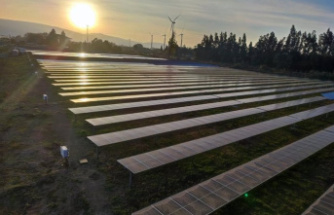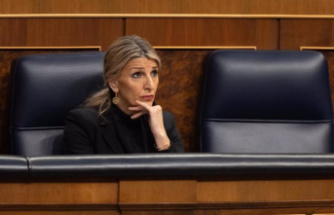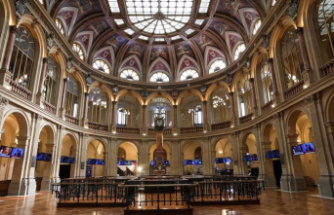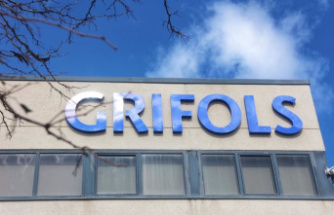A paradox: though France is the first tourist destination in the world it is "only" third, when one focuses on the economic returns generated by the sector. This is the finding of the report delivered to their peers by the mp Margaret Deprez (Modem) and Didier Martin (LREM), tourism commission, Wednesday, July 24, and that Le Figaro is provided.
" READ ALSO - When France heats up: everything will change in our lives
The context is stretched. Weakened by a bad image after the protests of the "yellow vests" and subject to international competition, France is in a precarious position, while tourism accounted for 7.2% of the national GDP. Also it is scrutinized closely by the government, which had planned to mobilize up to 1 billion euro between 2015 and 2020 for the developing, before you recognize not to be able to achieve this goal.
In 2018, France has reached the attendance "record" of $ 89.4 million international visitors, 9.3 million more than the United States and 6.5 million more than Spain. And yet, with a 55.5 billion euros of revenue in 2017, she is resting on its laurels, fustigent the two rapporteurs, when the United States continues to enjoy the equivalent of 160 billion euros, and Spain 60 billion in 2017.
France in 63rd positionThe explanations vary: "transit countries" for the Institute Montaigne, duration of staying for shorter periods than elsewhere (7.2 days in France compared to 8.7 days in Spain), or, more importantly, the daily expense to be lower for tourists. Visitors spend an average of 260 euros per day, thus placing France in the sixty-third position, far behind Japan or, again, Spain.
To this must be added another factor: the expenditures concentrated in time, in July-August, and in the space, mainly in the Île-de-France, Provence-Alpes-Côte-D'azur, Rhône-Alpes and Languedoc-Roussillon. The four regions which account for 60% of overnight stays of international tourists.
" READ ALSO - Ice cream and sorbet: how professionals are facing an explosion in demand
Stimulate consumption should thus become a priority, the report says. Several tracks are mentioned. The strengthening of the opening of shops on Sundays and holidays, particularly in places with high tourist traffic, is recommended. For this, the report proposes "to create new areas of international tourism in the resorts and tourist towns where there is a local consensus in favour of opening up Sunday shopping."
A scourge unexpected: the 1st of maymay 1st, a public holiday, seems to be another setback to the tourism activity, as evidenced by the unfortunate story of a restaurant owner forced to close in full service and be subject to a fine of 750 euros per employee improperly used". The act calls for the closing of shops, with the derogations provided for by the labour Code. However, the differences between the interpretation and the application of the law to leave a blur, which penalizes restaurant operators and consumers, to feel sorry for the reporter.
" READ ALSO - Climate: the current warming, a never-before-seen in 2 000 years
The report also proposes to expand the number of stations at which shops may open on Sunday. Already tested in the six large parisian railway stations and in six others in the province, the opening of shops on Sunday has "enabled significant progress to the tourist expenditure". Their turnover increased by 8% on average in 2017, the authors note.
Future goose that lays the golden eggs: the "slow tourism"Margaret Deprez, Didier and Martin advocate finally to show the value of tourism to the tune of "sustainability" to attract new audiences, and in particular a local audience too quick to go abroad for the holidays. "It's going down from mass tourism and responding to the expectations of tourists for a tourism sense, France will be able to build a tourism strategy truly competitive". Depending on the site of reservations online Booking quoted by the report, "87% of tourists wish to limit their impact on the environment." The "slow tourism", or travel slowly and responsibly, taking care of his or her carbon footprint and striving to eat local, is a possible source for on-site consumption, say the rapporteurs.
sustainable tourism would be "a genuine public health strategy in the area of sustainable tourism". Development of eco-labelling schemes, a generalization of the calculation of the carbon footprint to the whole of the tourist consumption, preservation of ecosystems, mesh tightened transport "green"... An innovative approach compared to previous reports on the issue. The point is not to exclude some inconsistencies, as suggested in the same chapter, multiply the number of regional airports.
Date Of Update: 28 July 2019, 00:00












